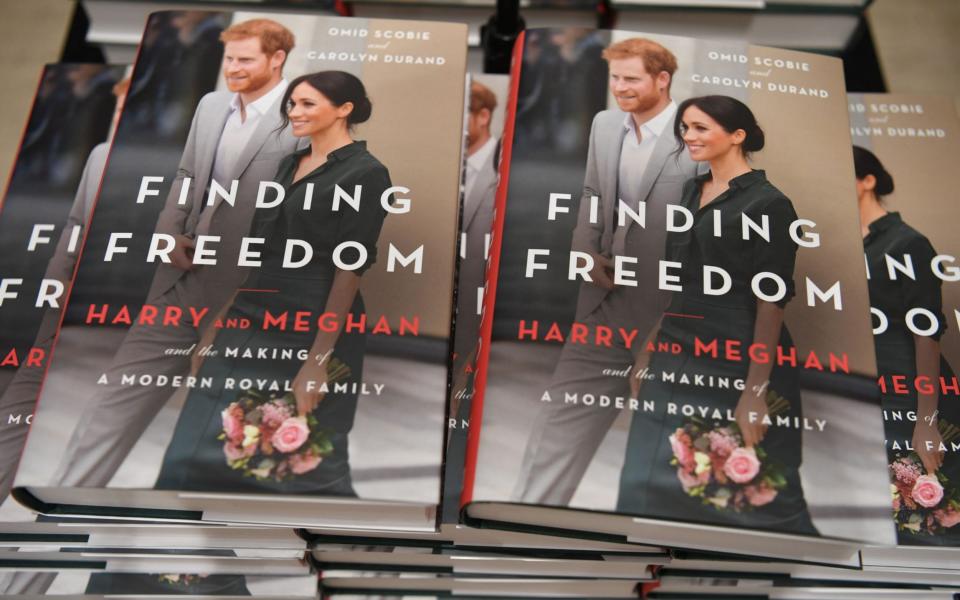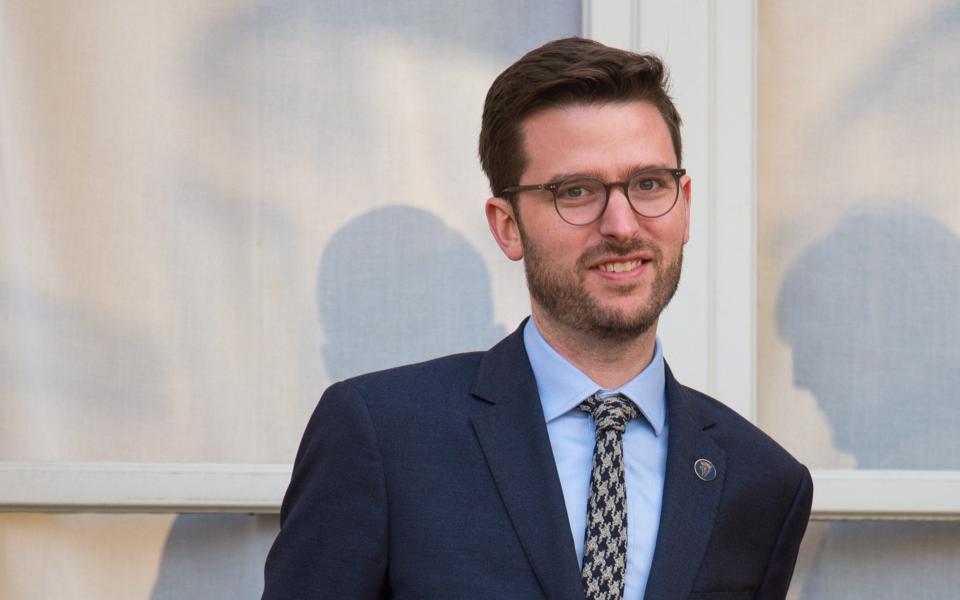Meghan Markle admits giving personal information to the authors of Finding Freedom

The Duchess of Sussex has admitted passing information to the authors of Finding Freedom despite previously dismissing claims that she cooperated with them as a "conspiracy theory".
In new documents lodged with the High Court, she reveals she was concerned that "her father’s narrative” - that she had abandoned him and cut off contact - might be repeated, prompting her to intervene.
The Duchess says she gave her own version of events to someone else to pass on, so “the true position… could be communicated to the authors to prevent any further misrepresentation.”
It also emerged on Wednesday that the Duchess wrote to her estranged father, Thomas Markle, on the advice of two “senior” members of the Royal Family.
The relatives are not named but it is known that the Sussexes went to stay with the Prince of Wales and the Duchess of Cornwall at the Castle of Mey, their home on the north coast in Caithness, in August 2018, shortly before the letter was sent.
The Duchess admits that Jason Knauf, then-Kensington Palace communications secretary, helped her compose the letter and informed other royal households that it was being written.
She insists that despite external collaboration, there was no discussion about the letter being used as part of a “media strategy” to enhance her image, a claim she describes as "misconceived and offensive."
The Duchess is suing Associated Newspapers, the owner of The Mail on Sunday, for breach of privacy and copyright after it published extracts of the letter.

But lawyers on behalf of the newspaper allege that she breached her own privacy because she “permitted” details about her life to be shared with the authors of Finding Freedom, including “information about the letter”.
In September, the Duchess's legal team strenuously denied the allegation that she collaborated on the book, describing the argument as "false", "fantastical" and "a conspiracy theory".
Justin Rushbrooke, QC, said in written submissions that instead of getting information from confidential sources, all the authors did was "collate a vast amount of scraps of information".
However, the amended court documents reveal that the Duchess was “concerned” that Mr Markle’s allegations that she had “abandoned him and had not even tried to contact him” would be repeated, despite being false.
She therefore told someone she knew had already been approached by the book’s authors, Omid Scobie or Carolyn Durand, that they could convey “the true position.”
The Duchess is said to be unaware to what extent “this one item of information concerning her communications with her father” was shared.
Despite the intervention, she insists that she did not speak to Mr Scobie or Ms Durand about the book, never meeting with them or being interviewed formally or informally.
Watch: Who is Prince Harry?
The documents state that neither the Duke nor the Duchess wanted any involvement with the book and that the only interaction the Duchess had ever had with Mr Scobie was in March, when he was invited to Buckingham Palace as the couple bid farewell to staff.
As an example of the “creative licence” used, she says a claim that Prince Harry texted his father to tell him their son Archie had been born was “plainly false” as the Prince of Wales does not have a mobile phone.
Perhaps significantly, she admits that she does not know if the Kensington Palace communications team provided any information on her behalf.
The letter at the heart of the case was sent to Mr Markle in August 2018, three months after the Duke and Duchess of Sussex’s wedding.
As the newest member of the Royal Family, the Duchess “wanted to follow protocol” and so sought advice from two senior members on “how best to address the situation,” legal documents reveal.
As a result, she decided to write the letter in a bid to stop Mr Markle speaking to the press. In it, the Duchess accused her estranged father of breaking her heart "into a million pieces".
Once she had decided to write it, she informed Mr Knauf, who had become a close confidante and had been speaking to Mr Markle on a regular basis, particularly in the run-up to her wedding.

Mr Knauf was responsible for telling other senior members of the Royal households of the plan, the documents reveal.
The Duchess spent “many hours” working on a draft of the letter on her iPhone and shared it with both her husband, the Duke of Sussex, and Mr Knauf, “for support as this was a deeply painful process that they lived through with her,” she states.
Mr Knauf “provided feedback” in the form of “general ideas,” but no actual wording.
The document describes claims that they knew Mr Markle would reveal the contents of the letter once it was in the public domain as “ludicrous”.
Her lawyers argue that despite external collaboration, there was no discussion about the letter being used as part of a “media strategy” to enhance her image.
The document adds: “For the avoidance of doubt neither Mr Knauf (nor anybody else) created any part of the Electronic Draft or the Letter. The Claimant, and the Claimant alone, created the Electronic Draft, which she then transcribed by hand to her father as the Letter.”
The Mail on Sunday has argued that as the letter is not wholly original, the Duchess is not protected by copyright.
It has alleged that the letter simply recites “pre-existing facts and admonishment” including the Duchess’s views of Mr Markle and his conduct, and is therefore not her “own intellectual creation”.
A ten-day trial scheduled for January was postponed for at least nine months after the Duchess won a delay on confidential grounds.
Watch: Is The Crown a true story?

 Yahoo News
Yahoo News 